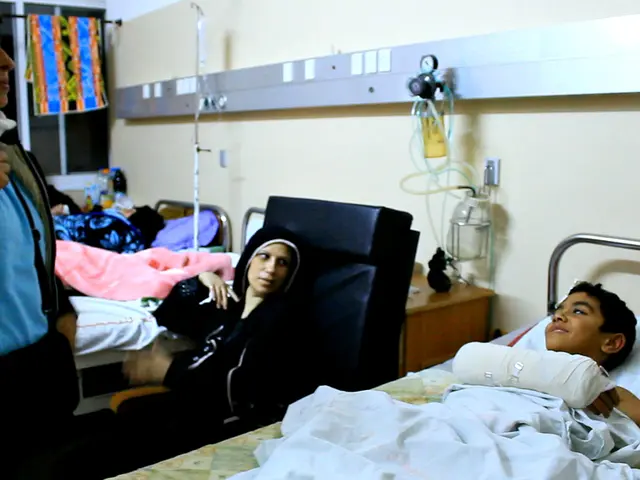A Glimpse into the Shocking Prevalence of Childhood Sexual Abuse in Germany
Multitudes of German Children Suffer from Childhood Sexual Abuse
In a recent nationwide study, researchers at the Central Institute of Mental Health (CIMH) have revealed that approximately 12.7% of individuals aged 18 to 59 in Germany have experienced sexualized violence at least once in their lives. This equates to a staggering 5.7 million people in this age group.[1] This research also sheds light on the significant number of unreported cases, suggesting that the actual figure could be far higher.[1]
Disturbing Gender Imbalance
The study showed that the impact of sexualized violence is disproportionately affecting women, with 20.6% of women aged 18 to 59 reporting such abuse before reaching age 18, compared to just 4.8% of men in the same age group.[2]
Widespread Occurrence and Hidden Contexts
Despite increased public awareness, sexualized violence against children and adolescents remains prevalent in Germany, with multiple settings contributing to these crimes. Yet, limited data hampers the creation of targeted prevention strategies.[1][3] The consequences for victims are severe, often resulting in significant mental health challenges and long-term health issues.[3]
Underreporting and a Call for Action
Sexualized violence is severely underreported in Germany, occurring in various settings, including familial environments, institutions, and volunteer organizations.[3] International comparisons suggest that Germany's rates are in line or slightly below some European averages, but cross-national data can vary widely due to diverse reporting cultures and legal frameworks.[4]
Key Takeaways:
- Prevalence: 12.7% of 18–59 year-olds in Germany have experienced sexualized violence at least once; almost all incidents occur during childhood or adolescence.[1]
- Gender Disparity: Women (20.6%) are much more likely to have suffered sexual abuse as children compared to men (4.8%)[2]
- Contexts: The crimes occur in multiple contexts, but data on precise circumstances are still limited, hindering effective prevention.[1][3]
- Consequences: Victims face long-term health and psychological effects, underscoring the need for robust support and intervention systems.[3]
These findings reaffirm the need for enhanced monitoring, prevention strategies, and support services to tackle the ongoing challenges presented by childhood sexual abuse in Germany.
Sources:
[1] ntv.de, Basil Wegener, dpa
[2] Statistisches Bundesamt (2020). Ergebnisse der Bevölkerungsumfrage 2019: Situation und Gesundheit
[3] Deutsches Haus für Chilbelastungsfragen
[4] European Agency for Safety and Health at Work (2018). Child abuse in the European Union. A literature review
- In light of the shocking prevalence of childhood sexual abuse in Germany, it is crucial to address community policy, ensuring the safety of children and promoting awareness about sexual health and mental health.
- The health-and-wellness of individuals who have been victims of childhood sexual abuse necessitates the development of robust employment policies, providing support and care for those affected.
- To effectively combat underreporting of sexualized violence, it is essential to strengthen crime-and-justice policies and improve general-news reporting, encouraging victims to come forward and seek help.








